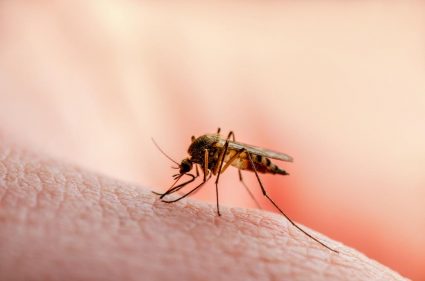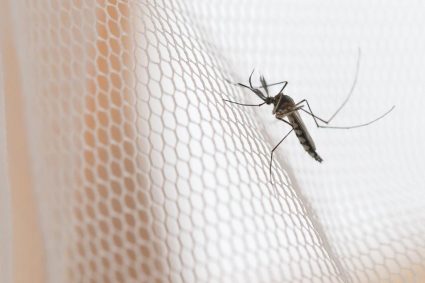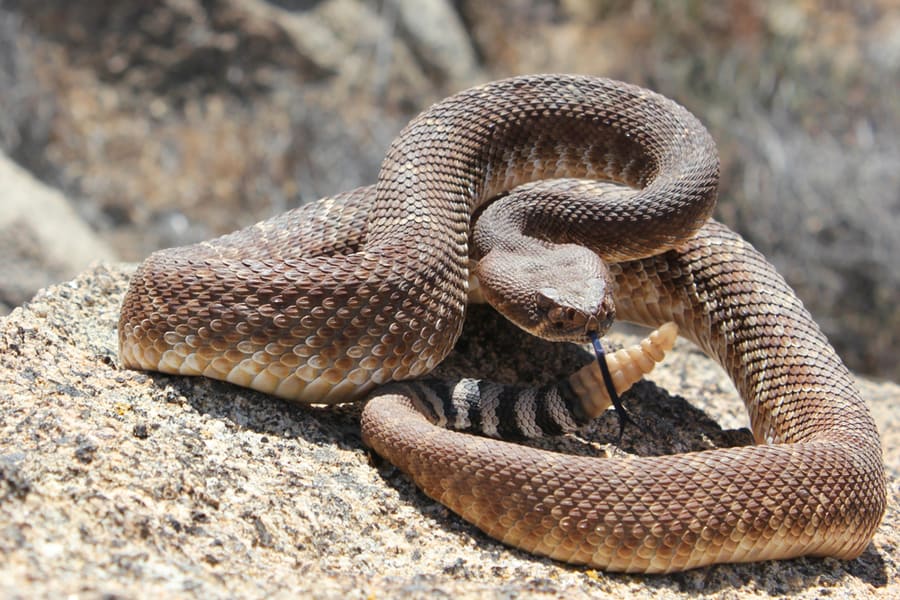
Having those scaly, legless, and horrifying rattlesnakes wriggling in your yard certainly isn’t an ideal scenario.
However, many of us might have to endure this living nightmare, as snakes can be very annoying pests.
As scary as it may seem, your garden or yard provides a perfect spot for snakes to hide and thrive.
Unless you’re a professional, dealing with poisonous snakes directly can be extremely dangerous. It even poses a serious threat to your children and pets.
So, how can you make the snakes leave your yard if you’ve encountered them? And how can you ensure they won’t come back sliding through the green grass?
- Tall grass, wooden logs, burrows, and even water bodies in your yard make perfect shelters for rattlesnakes.
- Moreover, other pests, such as rodents, fish, and frogs, found in your garden are their favorite meals. You have to eliminate all these attractions from your yard to make the snakes go away.
- Snakes have an incredible sense of smell. You can use strong natural odors like garlic, clove, or ammonia that will repel the snakes from your yard.
- Store-bought snake repellents are also an effective alternative.
- You can also introduce natural snake predators like foxes, turkeys, or raccoons to keep the snake population at bay.
- Lastly, calling professional wildlife control companies would be the safest and most effective method, but it would cost you a lot more.
In this article, we will explain all the different ways of deterring rattlesnakes in detail. Some methods are very simple and require only a handful of household items. It will make it easier for you to try all the different ways and select the one that works the best by the hit-and-trial method. Let’s jump straight to answering the main problem, “What deters rattlesnakes?”
4 Best Ways To Get Rid of Rattlesnakes
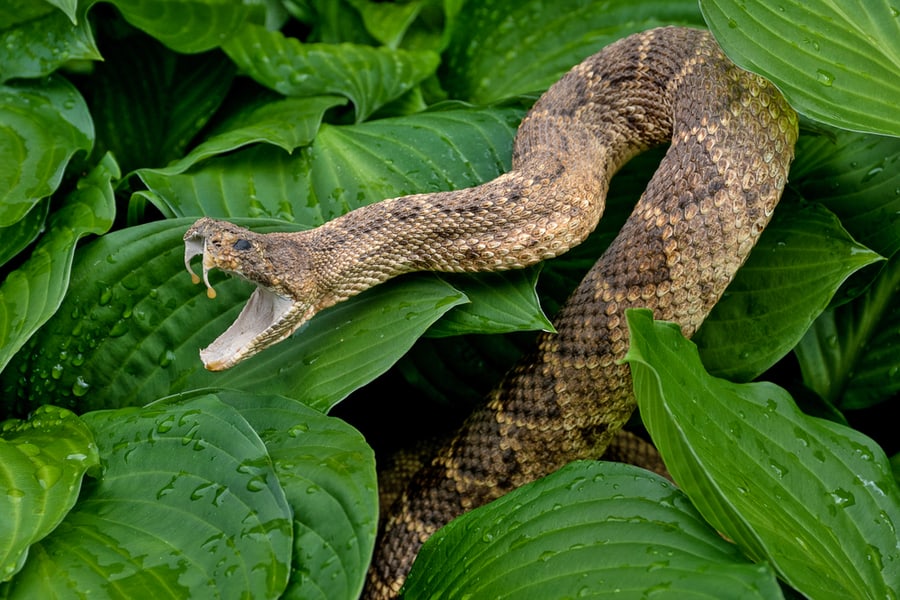
Here are the most effective ways to get rid of the rattlesnakes in your yard.
1. Using Strong Natural Odors
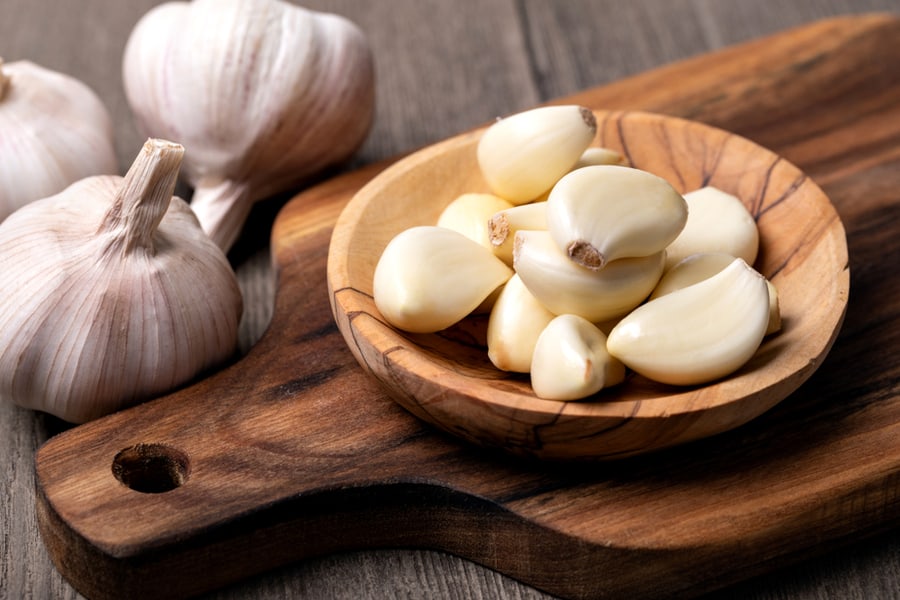
A long, two-tine, flicking tongue is the trademark of a snake. However, unlike humans and other animals, snakes use their tongues to smell.
When their tongue flicks out, it picks up food odor particles from the surrounding air. Due to this highly evolved adaptation, they have an incredible sense of smell.
You can use their keen sense to their weakness, as snakes hate strong odors like garlic, ammonia, naphthalene, clove, and other sharp scents.
Spreading these scents around the perimeter of your yard will definitely encourage the snakes to leave.
Homemade Snake Repellents

Making a strong scent combination at home is the easiest method to deter snakes.
Moreover, using natural ingredients also ensures the safety of fauna in your garden.
The trick is applying the repellent on absorbing surfaces such as woody patches and frequently reapplying the mixtures.
- If you’re using garlic, smash some garlic cloves and let them sit in a generous amount of olive oil for a while. Once the garlic scent gets soaked up in the oil, you can spray it around your garden.
- If you don’t want pungent odors in your yard, you can also opt for a sweet alternative like clove or cinnamon essential oils. You can also mix different essential oils you like. They will smell great and work wonders at the same time, so it’s a win-win situation.
- Peppermint, lime, and even hot pepper mix are also effective concoctions that not only keep the snakes at bay but can also irritate these animals if they get on their skin.
- If the snake problem revolves around your pond, you can use vinegar around the edges to keep the snakes away. However, it should be used carefully as it can create an acidic water environment, which is unsuitable for most aquatic animals.
Store-Bought Snake Repellents
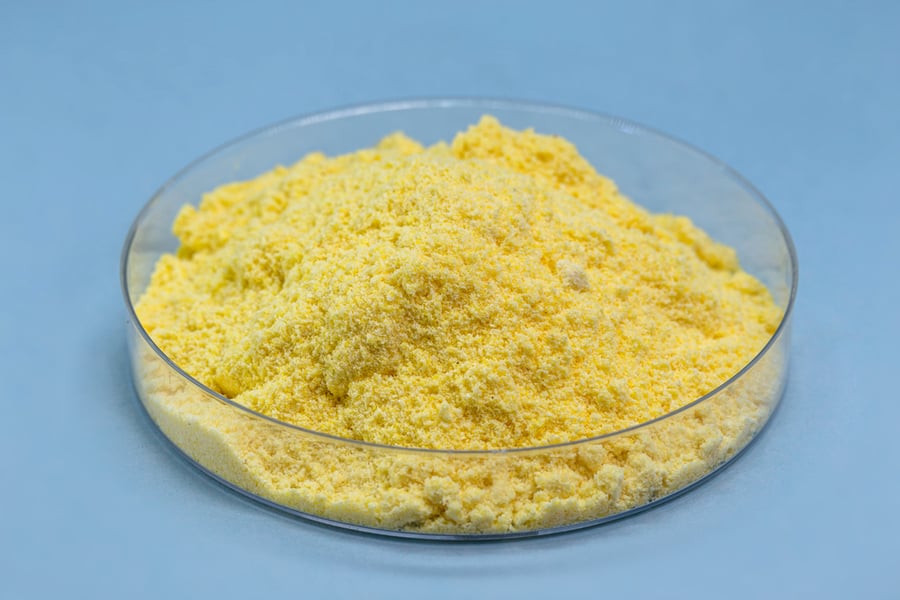
A trip to the local garden store can reveal a lot of good snake repellents.
Although they won’t be harmless like homemade remedies, they will yield positive results much sooner. Still, you should use such products with caution.
Most snake repellents use sulfur, naphthalene, ammonia, or other sharp smells that rattlesnakes hate the most.
You can also buy smoke-creating products from the store. Smoke particles in the air hinder the snake’s sense of smell, so they will naturally want to leave the space.
2. Removing Shelter Spots

Where will the snakes hide if you remove all their possible shelter spots from your garden? Definitely outside your territory!
You can start by mowing your lawn and removing any long patches of grass.
Scan the perimeter for any fallen logs, large stones, piles of trash, or other dark places that can shelter the snakes.
You must also fill any holes or burrows, so the snakes have nowhere to retreat except outside your yard.
However, if you encounter a snake in your garden, you can spray it with the hose until it flees.
Just make sure to maintain a safe distance because rattlesnakes are venomous and have a pretty long striking range.
3. Eliminating Food Sources

Your yard becomes a snake haven if there are a lot of shady and dark places to hide.
If snakes can live there, then other pests can make it their home as well, such as mice, rats, moles, birds, and insects.
These pests are the primary food source for rattlesnakes. As long as there’s plenty of food, a snake won’t find a reason to leave your yard.
You must try to keep your garden free of all these pests by using either natural or synthetic products.
Once you eliminate the snake’s food sources, it will automatically drive it toward the areas with more food sources.
In addition, it’s always a plus to keep a pest-free yard, as pests can be harmful to plants.
4. Introducing Snake Predators

Using strong snake repellents is a great idea, but it’s not foolproof altogether. The more methods you use, the more likely your yard will be rattlesnake-free.
If you’re planning to add new animals to your garden, why not bring the ones that prey on snakes? Turkeys and guinea hens are great examples.
Snakes often try to steal their eggs from the enclosure, and these birds attack them as a defense mechanism. This will surely drive the snakes out of your yard without damaging your territory.
Raccoons and foxes around your neighborhood will also prey on snakes, so you should encourage these animals to visit your yard frequently by providing them food, for instance.
5. Calling Wildlife Control Companies

As easy as it may seem, rattlesnakes can be quite annoying, in addition to being extremely venomous and deadly.
Not everyone will have the time and courage to go head-to-head with these reptiles, especially if there are small children or pets around.
If you want a quick solution, calling professional help will be the best idea.
Wildlife control companies will most likely charge you for the number of snakes they catch or by the area measurement. It can cost you a considerable amount, but it will be a one-time investment.
Professionals will find and catch all the snakes in your yard, and often, they will perform all the above-mentioned methods to make your yard snake-proof for the future.
You can also ask them for advice on keeping the snakes away. They will tell you the most effective ways according to your location.
Takeaway
Rattlesnakes are common pests. However, they need to be taken care of properly because they are one of the most venomous snake species in the world.
If you’re not careful in dealing with them or they make your yard their permanent home, you can get into a lot of trouble.
Here are the most effective and useful methods to deter rattlesnakes in your yard:
- Use strong natural odors or store-bought snake repellents.
- Clean up the yard to remove any potential shelter spots for snakes.
- Eliminate other pests, like rodents, from the yard, which are snakes’ primary food sources.
- Introducing those birds and animals to your garden that prey on snakes.
- Taking professional help by calling wildlife control companies.
Frequently Asked Questions
Are All Rattlesnakes Venomous?
Yes, the rattlesnake family contains one of the world’s largest species of venomous snakes. They can attack rapidly at one-third or even more of their body length distance, so make sure to stay out of their striking range.
Can Rattlesnakes Enter My Home?
Yes, rattlesnakes can surely wriggle into your house to find shelter if they see an opening. You must seal all the cracks with sealing materials such as insulation foam to keep them out of your home.



